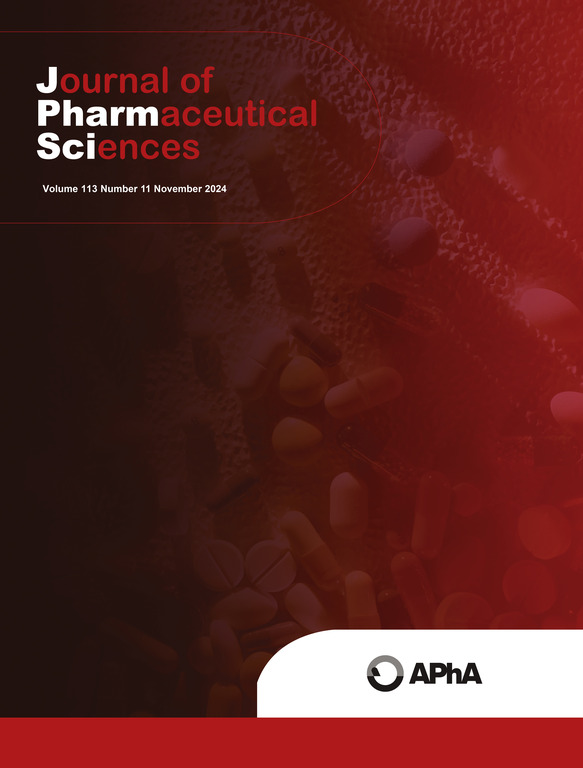Two recombinant cytomegalovirus antigens formulated with the SPA14 adjuvant system: Impact of temperature, pH and excipients on the stability of each antigen and adjuvant component
IF 3.7
3区 医学
Q2 CHEMISTRY, MEDICINAL
引用次数: 0
Abstract
By evaluating the stability profiles of each component of a vaccine candidate (antigens, adjuvants), formulation conditions to mitigate vaccine instability can be identified. In this work, two recombinant Cytomegalovirus (CMV) glycoprotein antigens (gB, Pentamer) were formulated with SPA14, a novel liposome-based adjuvant system containing a synthetic TLR4 agonist (E6020) and a saponin (QS21). Analytical characterization and accelerated stability studies were performed with the two CMV antigens, formulated with and without SPA14, under various conditions (temperature, pH, excipients). For the antigens, the Pentamer was less stable than gB, and the addition of SPA14 adjuvant had negligible impact. For the SPA14 components, minor pH shifts (caused by the buffer's temperature dependent pKa shifts) destabilized the liposome (particle size by DLS) and QS21, but E6020 was unaffected (integrity by RP-UHPLC and LC-MS, respectively). The addition of chelators and free radical scavengers stabilized both the QS21 and E6020 components, consistent with oxidative degradation catalyzed by trace metal-ions. Interestingly, QS21 and E6020 also displayed improved storage stability in the presence of the protein antigens. These results are discussed in terms of developing key stability-indicating assays to optimize formulation conditions to stabilize the two CMV antigens and the three components of the SPA14 adjuvant system.
用 SPA14 佐剂系统配制的两种重组巨细胞病毒抗原:温度、pH 值和辅料对每种抗原和佐剂成分稳定性的影响。
本文章由计算机程序翻译,如有差异,请以英文原文为准。
求助全文
约1分钟内获得全文
求助全文
来源期刊
CiteScore
7.30
自引率
13.20%
发文量
367
审稿时长
33 days
期刊介绍:
The Journal of Pharmaceutical Sciences will publish original research papers, original research notes, invited topical reviews (including Minireviews), and editorial commentary and news. The area of focus shall be concepts in basic pharmaceutical science and such topics as chemical processing of pharmaceuticals, including crystallization, lyophilization, chemical stability of drugs, pharmacokinetics, biopharmaceutics, pharmacodynamics, pro-drug developments, metabolic disposition of bioactive agents, dosage form design, protein-peptide chemistry and biotechnology specifically as these relate to pharmaceutical technology, and targeted drug delivery.

 求助内容:
求助内容: 应助结果提醒方式:
应助结果提醒方式:


